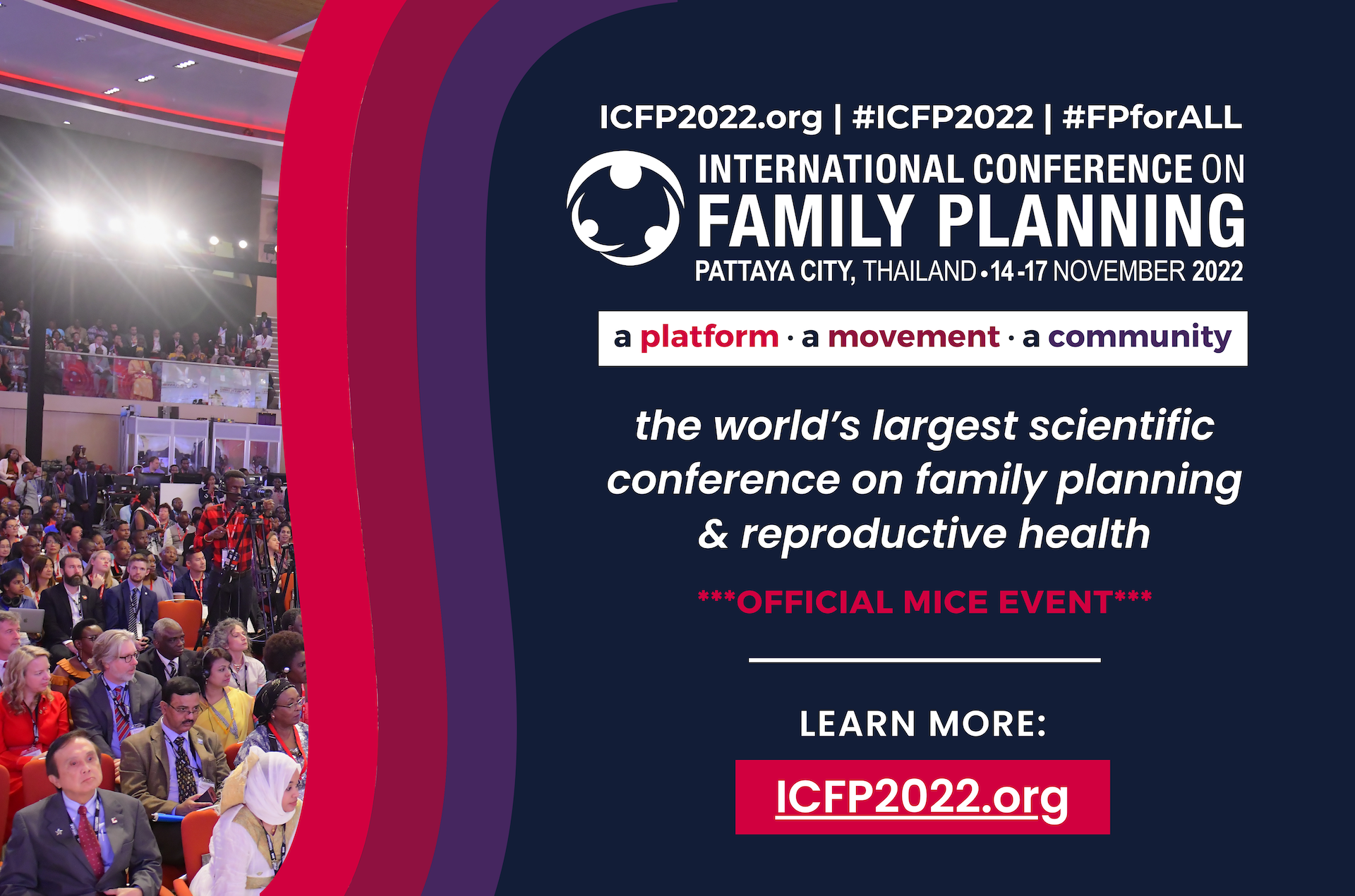Blogs

The 2022 International Conference on Family Planning that convened in Pattaya City, Thailand, a week ago focused on unpacking the intersection between family planning and universal health coverage. Policymakers and academics, women and girls, young people, and advocates for family planning from over 125 countries—including many Lower Middle-Income (LMICs) gathered to discuss and reflect on this year’s topic, ‘Family Planning & Universal Health Coverage: Innovate. Collaborate. Accelerate.’
With a staggering 218 million women in developing countries not using safe and effective family planning methods to prevent pregnancy, AFIDEP’s story on outlier countries like Malawi, which have made progress in improving the contraception rate, was a respite. AFIDEP’s Executive Director, Dr Eliya Zulu, highlighted that the success stories are lessons for other countries to learn key drivers that had put Malawi and similar countries on track to meeting 2030 family planning goals.
When the COVID-19 pandemic hit over two years ago, most countries downsized, reprioritized, and redirected resources to save their populations. Family planning services were among the programs negatively affected. There were disruptions in the supply chain limiting the production, distribution, and availability of contraceptive commodities. Consequently, progress in accessing family planning could have been more timely, even reversed. Therefore, for countries to get back on track to achieve the fast-approaching 2030 family planning goals, they will need to identify the level of impact across the different areas so that interventions are effective.
AFIDEP’s Back-on-Track Project is helping countries to identify hotspots where sexual reproductive health and family planning uptake are slowest and where COVID-19 has impacted access to SRH/FP services through targeted interventions to stay on course and progress towards achieving SDGs.
The 2022 ICFP conference received record abstracts on modern methods of contraception reflecting trends in recent decades where the emphasis has often been on modern family planning programs, while traditional methods of contraception received little attention. Traditional methods get little attention because current methods for assessing traditional methods are not well documented. Which then understates their prevalence in existing surveys.
AFIDEP is committed to contributing to a world where decisions about people’s livelihoods are evidence-based. This principle has become even more imperative as the world edges closer to the lapse of the global Agenda2030. Countries would need evidence to identify gaps in their policies and program and how to close them. They need to be more innovative and go beyond the known and familiar. AFIDEP’s Team-Up Project is one such example. The study’s objective is to improve survey techniques and approaches for estimating traditional methods of contraception. Revising current strategies for evaluating traditional methods of contraception is expected to enhance the overall contraceptive uptake among women. Consequently, it contributes to the realisation of SDGs.
As we advance towards 2030, stakeholders must make conscious and concerted efforts to operationalize the incorporation of voluntary family planning and reproductive health into development programmes to achieve SDGs and universal health outcomes for all. The running and undisputable narrative throughout the conference was that support for women’s reproductive rights is the best marker for women’s support. Put differently; there is no better way for the world to show its support for women than to support their sexual and reproductive health.

